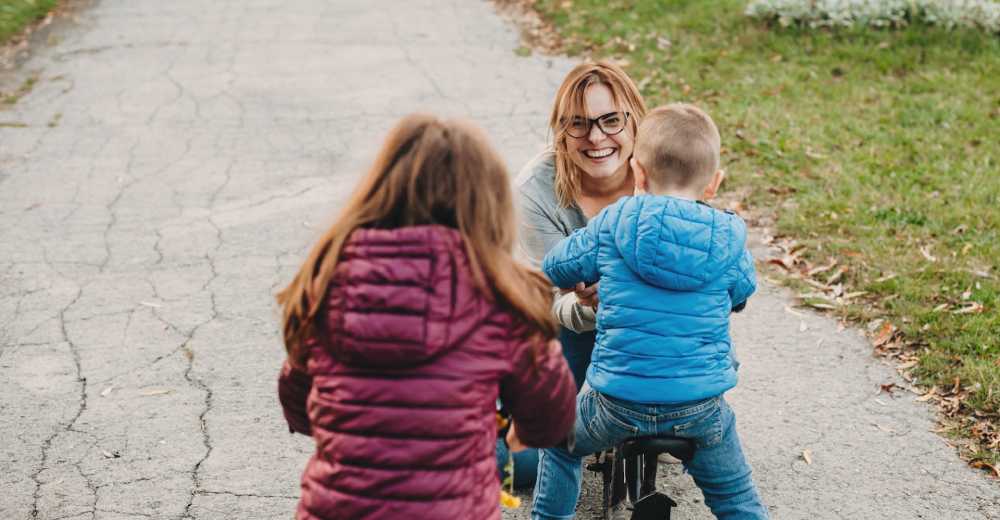Infant Care and Cultural Exchange: What Au Pairs Bring to Family Life
The modern family structure has evolved, and so has the approach to childcare. In a bustling world where globalization is a defining aspect of our lives, the role of an au pair has become multifaceted. Discovering what is an au pair opens up opportunities for the au pair and the host family.
Unlike traditional childcare options, au pairs are typically young adults from overseas, eager to share their culture while they live as part of a host family. They provide child care, but their effect on a household reaches far beyond; they bring their unique perspective and cultural heritage, enriching the family’s life with global insights and traditions.
Moreover, au pairs often serve as language ambassadors, exposing children to new languages and facilitating early language acquisition in a natural and immersive environment. Their presence fosters a sense of global awareness and curiosity in children, broadening their horizons and preparing them for an increasingly interconnected world.
Additionally, au pairs offer flexibility and personalized care that may not be available through traditional childcare options, adapting to each family’s unique needs and schedules. By embracing an au pair into their home, families gain a reliable childcare solution and cultivate meaningful cross-cultural connections and relationships that can last a lifetime.
Ultimately, au pairs’ role in modern families transcends mere childcare, shaping the next generation with diverse perspectives and fostering a more inclusive and globally-minded society.
Contents
- 1 More Than Childcare: The Cultural Exchange Aspect
- 2 Setting Expectations: What Au Pairs Can and Cannot Do
- 3 Benefits of Having an Au Pair for Your Children
- 4 How to Foster a Positive Relationship with Your Au Pair
- 5 Challenges Families Face and How to Overcome Them
- 6 Steps to Take When Considering an Au Pair for Your Family
More Than Childcare: The Cultural Exchange Aspect
Au pairs do more for their host families than look after the children; they represent a key that unlocks new cultural insights. They bring stories, traditions, and perspectives that give host families, especially the children, a tangible connection to the broader world.
This interaction primes the young minds in the family for greater cross-cultural understanding and appreciation. As children play, learn, and grow with their au pair, they absorb lessons far beyond what can be taught in a classroom setting. These unique learning experiences can profoundly impact a child’s social and cognitive development.
Setting Expectations: What Au Pairs Can and Cannot Do
While au pairs are an invaluable addition to family life, it’s essential to understand their intended role well. An au pair’s responsibilities are tailored around childcare activities such as helping kids with homework, playing games, and light meal preparation for the children. They are not professional housekeepers or trained nannies, so expecting chores beyond childcare is unfair.
Families looking to welcome an au pair should have realistic expectations the shifting dynamics of this cultural exchange over time. Establishing clarity can help avoid misunderstandings and ensure a positive experience.
Benefits of Having an Au Pair for Your Children
The rewards of having an au pair as part of a child’s life are vast. For instance, a child’s linguistic abilities can be significantly enhanced through routine interaction with an au pair who is a native speaker of another language. This naturalistic approach to language learning is unmatched in its effectiveness.
Furthermore, children learn to appreciate different cultural norms and values, fostering an inherent sense of empathy and open-mindedness towards people from different walks of life. Living with an au pair can grant children a broader worldview, which is increasingly essential in today’s interconnected societies.
Moreover, the unique bond between children and their au pair can offer a valuable sense of stability and continuity in their care, contributing positively to their emotional well-being.
How to Foster a Positive Relationship with Your Au Pair
Developing a nurturing and trusting relationship with an au pair is critical for a successful cultural exchange. Integration into the family unit should be marked by intentional inclusivity and clear communication.
Regular family meetings that include the au pair can help address any concerns or cultural misunderstandings that may arise. It’s also essential to respect the au pair’s time and encourage their exploration and understanding of the host country’s culture.
This two-way street of cultural sharing can deepen mutual respect and understanding, leading to a richer, more rewarding experience for both the au pair and the host family.
Challenges Families Face and How to Overcome Them
The benefits of having an au pair are clear, yet it has potential challenges. Cultural differences, language barriers, and adapting to living with a new person can cause friction if not handled with sensitivity and care. It is crucial to approach these challenges proactively through open communication and a willingness to learn from one another.
Facilitating language courses or engaging in community activities can help the au pair overcome language limitations and feel more integrated within the family and the local area. Patience and consistent effort in nurturing the relationship can turn challenges into meaningful growth opportunities and strengthen the bonds between the au pair and the host family.
Steps to Take When Considering an Au Pair for Your Family
Considering an au pair is a significant family decision and requires careful preparation. First, outline what you hope to gain from the experience and what you can offer an au pair in return. Research is vital—look into legal requirements, au pair agencies, and the variety of cultural backgrounds potential au pairs may come from.
Communicate with your family to ensure everyone is on the plan and understands the commitments. When choosing an au pair, consider personality fit, shared interests, and childcare experience. By thoroughly preparing and going into the process with a clear understanding and open heart, welcoming an au pair into your home can begin an enriching and transformative journey for your family.

